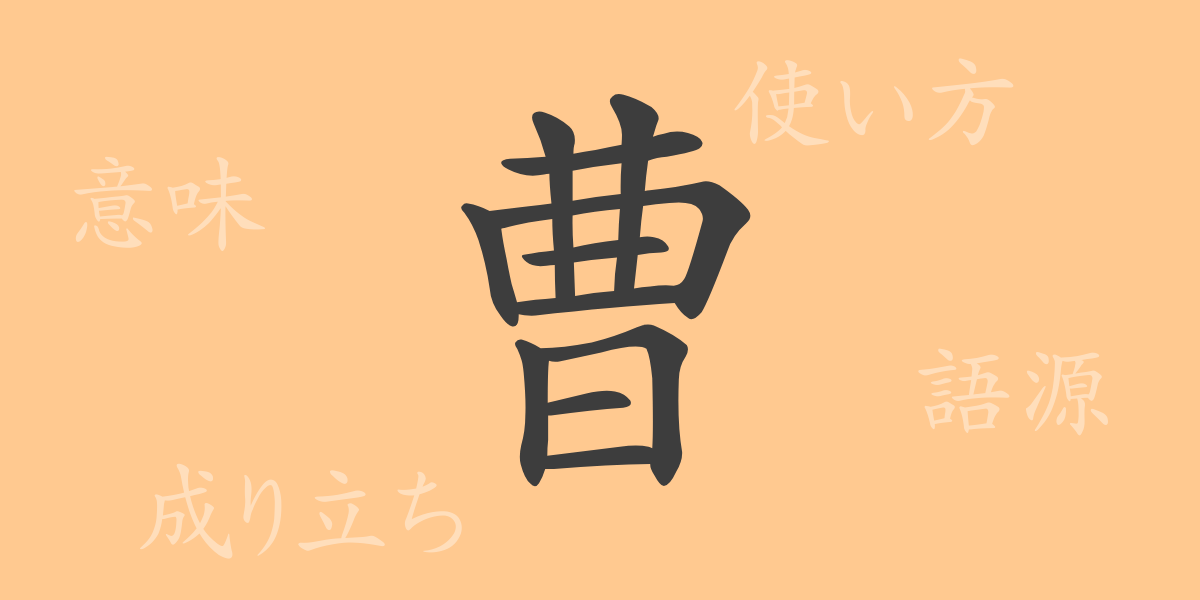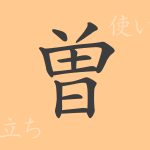The depth of Japanese character culture, where each Kanji carries historical and semantic significance, beautifully reflects the nuances of the language and culture. This article focuses on the common Kanji “曹” (ソウ – sou), exploring its origins, meanings, and uses. We will delve into how “曹” has evolved from ancient China to its modern applications in Japan, exploring the rich world of meanings this character encompasses.
Origins of 曹 (ソウ – sou)
The Kanji “曹” (ソウ – sou) can trace its roots back to ancient Chinese oracle bone scripts. Originally combining “草” (grass) with “曰” (to speak), it depicted the act of ‘pouring over grass,’ evolving to mean ‘to create’ or ‘to make.’ Over time, “曹” came to embody concepts of ‘gathering’ and ‘companionship’ and has been adopted into surnames, place names, and official titles, diversifying its use across various contexts.
Meaning and Usage of 曹 (ソウ – sou)
In modern Japanese, “曹” primarily denotes ‘group,’ ‘troop,’ or ‘companion.’ It appears in legal terms and government department names, and is known in military terms as a rank, indicating a ‘sergeant.’ Additionally, it is famous in the context of China’s Three Kingdoms, representing the historical figure Cao Cao, known for his strategic acumen in literature and history.
Pronunciation, Stroke Count, and Radical of 曹 (ソウ – sou)
The Kanji “曹” offers various readings and insights based on its structural composition:
- Readings: On’yomi “ソウ” (ソウ), Kun’yomi “ぞう” (ぞう)
- Stroke Count: 11 strokes
- Radical: “曰” but also used as a component in “書”
Phrases and Proverbs Using 曹 (ソウ – sou)
“曹” features in numerous idioms and proverbs that enrich the Japanese language. For example, “曹操” (そうそう – Cao Cao) refers to the Three Kingdoms’ hero, symbolizing a cunning individual. “曹司” (そうし – office department) denotes a government office section, and “曹達” (そうたつ – fellows) describes companions within a specific group or field.
Summary on 曹 (ソウ – sou)
The Kanji “曹” (ソウ – sou) has evolved to encompass various meanings, from indicating groups or troops to denoting historical and literary significance. As an indispensable element of the Japanese language, understanding the multifaceted meanings and uses of “曹” enriches our appreciation and usage of Japanese. Through this article, we’ve gained insights into “曹,” enhancing our understanding of how this character connects with daily life and broader cultural narratives.

























